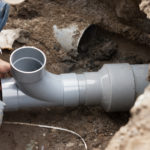The blistering summer sun is a boon after the seemingly endless months of a chilling, icy winter. Many people celebrate the arrival of summer days with outings to the beach, long road trips, and poolside gatherings. While the sun brings welcoming weather, the intense heat can be dangerous.
Take extra precautions during the hottest months of the year. Check out these heat safety tips:
-

Enjoy summer but make sure to follow these safety tips to keep you and loved ones safe. Hydrate well, especially in summer. Hot and humid days require more than the recommended eight glasses of water each day. Choose beverages carefully. Caffeine, alcohol, and carbonated drinks can cause dehydration and exacerbate effects of heat-related illnesses.
- Prepare light and well-balanced meals. High protein foods can increase one’s metabolism and contribute to the body’s water loss.
- Exercise wisely. While many individuals aim to take advantage of the sunny weather, select cooler times of the day to be active. Reschedule midafternoon exercises, when the sun peaks at its hottest temperature. Indoor workouts are an alternative, especially if you are alerted to a heat advisory.
- Take frequent breaks throughout the work day. If working outdoors in the intense heat, pair up with another individual who can offer assistance in the event of heat exhaustion.
- Never leave children or pets in a vehicle during summer. On a hot day, temperatures inside a car can soar to 140 to 190 degrees within as short as 30 minutes, leaving the vehicle’s occupants at risk for heat exposure.
- Frequently check on vulnerable individuals, including seniors and people without air conditioning in their homes. Prioritize visiting people who live alone and those most susceptible to heat. Infants, people with disabilities and those who are overweight are more prone to heat-related ailments.
- Libraries, malls, and movie theaters are public, air-conditioned places people can go to escape the heat if their home cannot remain relatively cool.
- Animals, too, require plenty of water during the summer months. Regularly check on pets to ensure they are relatively comfortable when the temps outside climb to dizzying heights. Shaded areas are important for pets to escape to.
- When indoors, minimize heat circulating through your home by cooking with small appliances rather the ovens or stovetops. Pull the drapes to reduce inside temperatures by up to 80 percent. Awnings and louvers are useful in properties that face the morning or afternoon sun. Run ceiling fans counterclockwise to pull room air toward the floor and cool the room.
- Most importantly, inspect your air conditioning well before the summer months to ensure the unit functions. Summer maintenance should be performed in spring, when repair servicemen are less in demand. Wait until summer to have your AC serviced, and you might be waiting for weeks for an appointment.
Heat is a main cause of weather-related deaths. The National Weather Service estimates hundreds of people die each year from illnesses provoked by soaring temperatures. Five major heat-related illnesses are:
- Heat stroke
- Heat exhaustion
- Heat cramps
- Sunburn
- Heat rash
1. Heat Stroke
Heat stroke can be identified when an individual’s body temperature rises to 103 degrees Fahrenheit or over. Dizziness, nausea, and confusion set in as their skin becomes damp, hot, red, or dry. A rapid, strong pulse is another indicator of heat stroke. A person may even pass out due to the consequences of heat stroke.
Heat strokes are medical emergencies. Waste no time in calling 911. While waiting for paramedics to arrive, move the heat stroke victim to a cooler place and apply cool, wet towels to the individual’s body to help reduce body temperature. Be careful to avoid giving water or any drinks to a person suffering from heat stroke.
2. Heat Exhaustion
A person can also pass out from heat exhaustion. Similar to symptoms of a heat stroke, those suffering from heat exhaustion become dizzy and may vomit. Individuals sweat profusely, experience a weak and fast pulse and become physically weak or tired.
Offer sips of water to a person suffering from heat exhaustion. Move the person to a cool, dry place and have the individual take a cool bath. Individuals with symptoms that linger over an hour or that become increasingly severe should be treated by a medical professional.
3. Heat Cramps
Muscle pain, cramps, and intense sweating during physical activity are symptoms of heat cramps. People who display these warning signs should stop exercise immediately and wait for the cramps to go away before resuming activity. Water or sports drinks should be consumed, as well. Seek medical help if the cramps last over an hour or the individual has heart problems.
4. Sunburn
Sunburn, while a mild consequence of summer sun, should be addressed promptly. Blisters along the skin and painful, red skin are recognizable as sunburn. Blisters that erupt should not be broken. Rather, stay out of the sun until the sunburn heals. Apply a soothing lotion on the areas of sunburn.
5. Heat Rash
Heat rash, too, is an outcome of the heat. Heat rash can be identified by the clusters of tiny blisters on the skin. These rashes should be kept dry and soothed with baby powder.
While summer is a time to enjoy the great outdoors and remain carefree in the balmy indoors, take extra care to prevent heat-related illnesses. ServiceMaster Restoration Services, a full-scale disaster restoration company, brings the above heat safety tips to you in hopes that you will enjoy a safe summer.
Heat Safety Tips from ServiceMaster Restoration Services
When any property emergency turns your life upside down, contact the ServiceMaster Restoration Services team for a quick disaster response. The company effectively remediates catastrophes, including water and flood damage, fire and smoke damage and mold infestations. The team also offers crime scene cleaning, air duct cleaning, and carpet cleaning for both residential and business properties.
ServiceMaster Restoration Services proudly serves the Omaha, NE community of residential homes and businesses. The company’s dependable team members are available to take your emergency call for restoration services 24 hours a day. Count on the years of experience, continual training and advanced equipment the professionals at ServiceMaster Restoration Services bring to every disaster restoration project.




